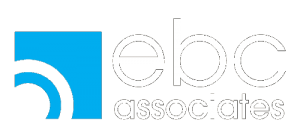Harris Poll and CareerBuilder revealed that 3 out of 10 hiring managers have discovered fake references on resumes. That’s why you always call.
Does your reference check process check out?
While there is no perfect, universal set of criteria for hiring, there’s one employment element very few employers skip: references. Eight out of 10 employers routinely check references, according to a survey from the Society for Human Resource Management.
But going through the motions with job candidate references is not enough to find your ideal employee. When was the last time you gave your reference checks a checkup?
Before we get started: Job references and U.S. law
Part of the reason why many hiring managers and human resource professionals avoid robust reference checks is a fear of overstepping the rules.
Although the federal government does not really regulate what employers can say about their former employees to other employers, many states have laws on the books pertaining to what sorts of information employers can relate. Defamation cases do spring up from the hiring/referencing cycle from time to time, so it’s best to review the laws in your state and expand on your system for reference checks within those bounds. Nolo has an excellent resource here we invite all curious parties to consult.
Questions to ask about reference checks
After reviewing the state laws that govern how you communicate with employer references, ask yourself the following four questions to strengthen your pursuit of the best candidate:
1. HAVE YOU SOLICITED MAKE-OR-BREAK DETAILS FROM CURRENT EMPLOYEES?
Upper management may have a good idea of what they want from a new employee, but no one will know the open role better than those who have lived it themselves or worked directly with those who have held the role.
Before moving forward with references, be sure to talk to any employees with relevant experience in or around the position you’re looking to fill. Try to glean from them nuances about the job that managers might not notice.
For example, if the open role requires a mastery of a certain kind of software, a hiring manager might check only that a candidate has a certain number years of experience. Current employees and users of the same software, however, will know which proficiencies are most important to operations. Refine the questions you ask the candidates’ references to reflect that specificity.
Confirming the details will prevent a small oversight from turning into a huge mistake.
2. ARE YOU CORROBORATING THE GENERAL DETAILS?
In a joint survey, Harris Poll and CareerBuilder revealed that 3 out of 10 hiring managers have discovered fake references on resumes. That’s why you always call.
But even real references can hide overstated or nonexistent skills unless you confirm the basics: How long did the candidate in question work at the organization and in his or her stated role? Do the responsibilities on the resume match the requirements from the former employer? How closely or loosely?
For staffing upper managerial or executive roles, reference checkers should also ask references for written confirmation of the candidate’s skills, responsibilities, certifications and anything else the employer aims to assess.
For staffing upper managerial or executive roles, reference checkers should also ask references for written confirmation of the candidate’s skills, responsibilities, certifications and anything else the employer aims to assess.
3. ARE YOU EXPLAINING YOUR MISSION TO THE REFERENCE?
Even when candidates inform their references that they might be getting a call – about a third of job seekers don’t – that doesn’t magically make reference calls convenient. Hiring managers who check those references must remember as much. At best, a reference call is an involved phone conversation in the middle of the working day with a complete stranger about someone who is leaving or has already left.
Why is this important? Because the hiring manager on the serving end must not only look past emotions but also articulate what exact information they’re looking for.
If, say, you ask a reference to name a time when the candidate had a bad experience with a customer, he or she is likely to recall one. Ask and ye shall receive. However, in the context of a job that serves many dozens of clients a day, one bad interaction and no others is hardly a death sentence. Be sure to explain your mission to the reference, specify what you’re corroborating and understand that these sorts of interactions are sometimes a jumble of hurt feelings and bruised egos.
4. ARE YOU SEEKING THE BEST PERSPECTIVES?
What should you do if a reference is unwilling to talk or unresponsive to open-ended questions or is just plain not helpful? Ask if there is anyone else you can talk to, that’s what.
Keep in mind, a candidate who lists a bogus or ill-fitting reference might be doing so to obscure something unflattering, but often references won’t have the time or patience to talk to you. Don’t punish the candidate – and your business, for that matter – by overlooking applicants with references who are uncooperative. Ask if there’s a better time to call or a better person to speak to, whether it be a human resource manager or a department head the candidate worked with closely. Snag the contact information, follow up at the appropriate time and do your best not to judge candidates because of the whole ordeal. In the end, it may turn out to be worth it.
Again, state laws may limit any and all of these suggestions. Consult recruitment specialists in your area for additional information before you change how you hire. Talk to EBC Associates to find out how our team can take the burden of reference checks off of your plate.


